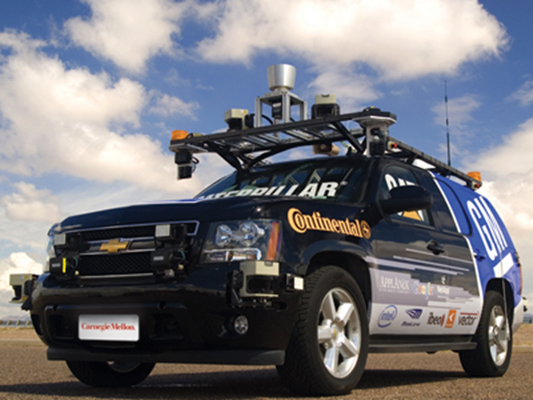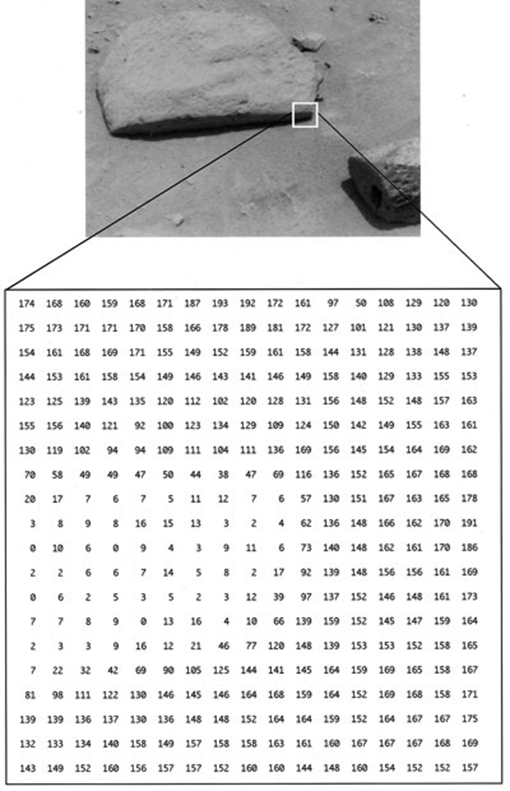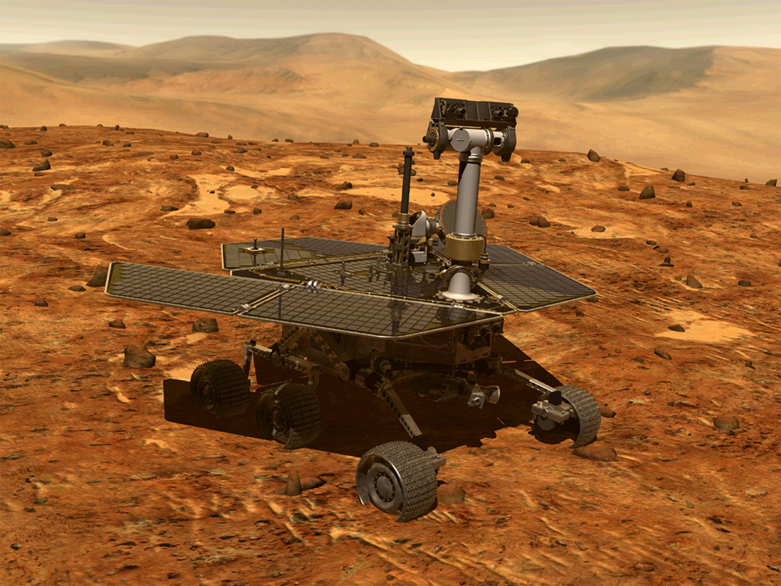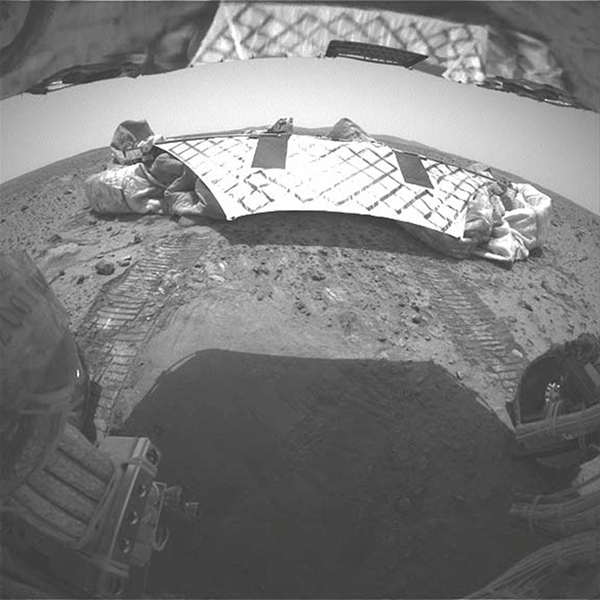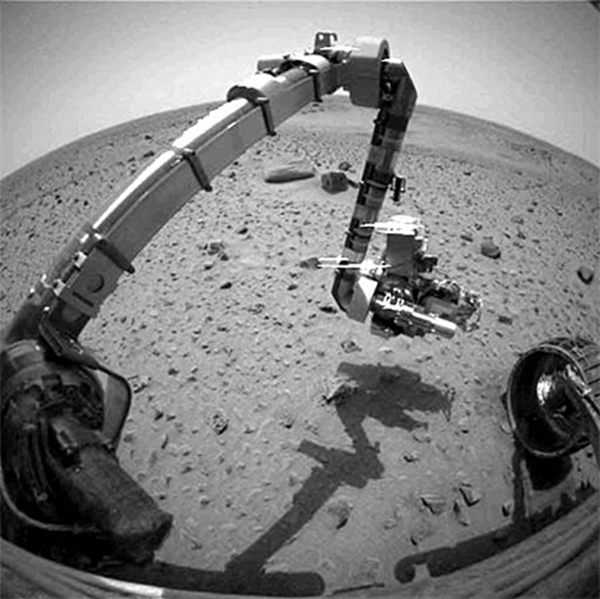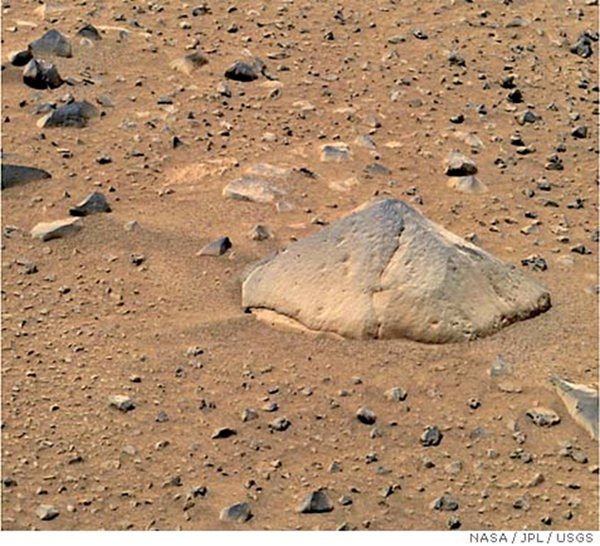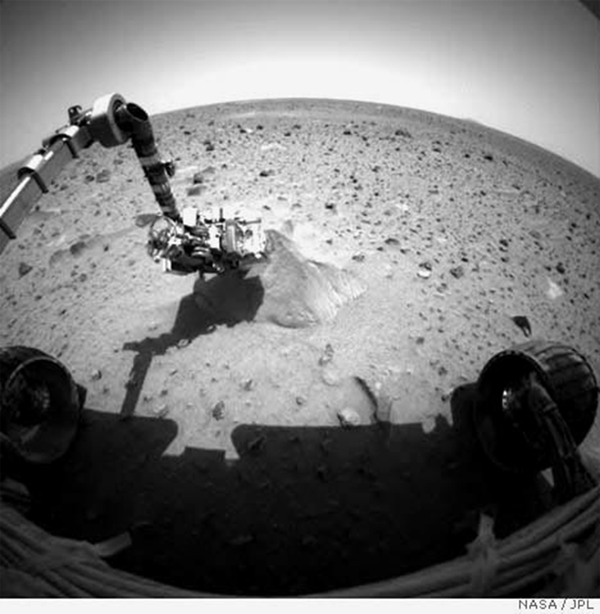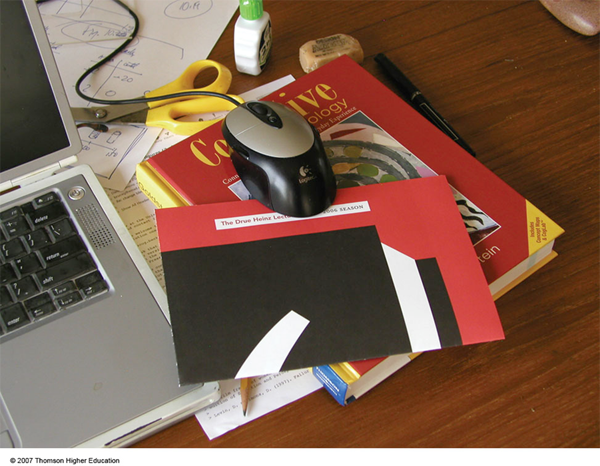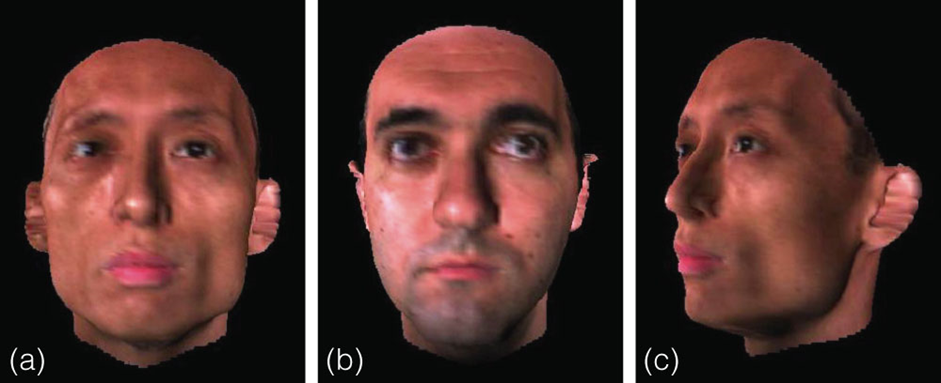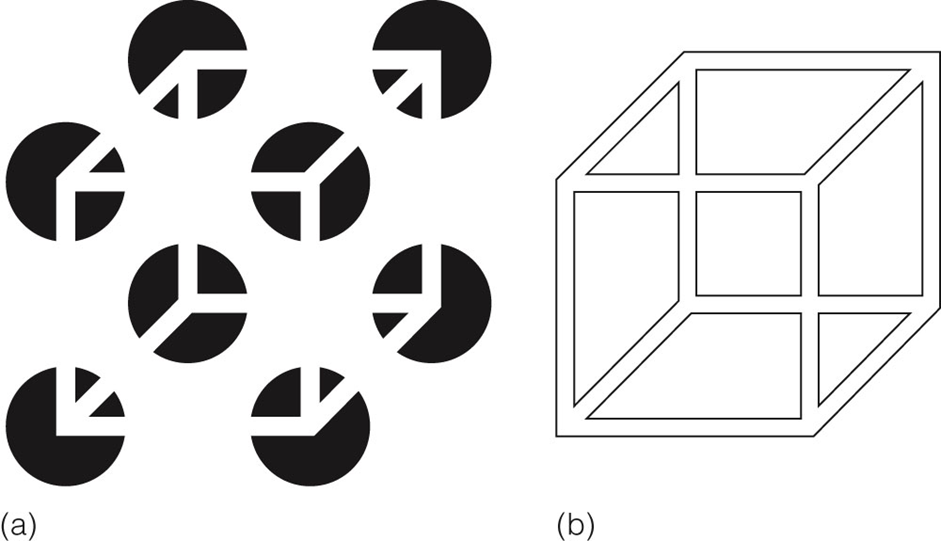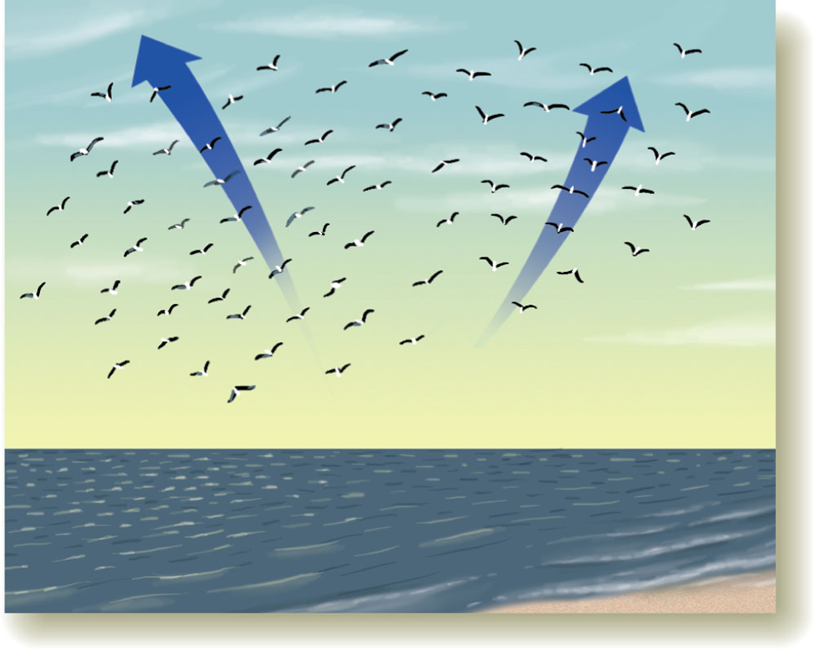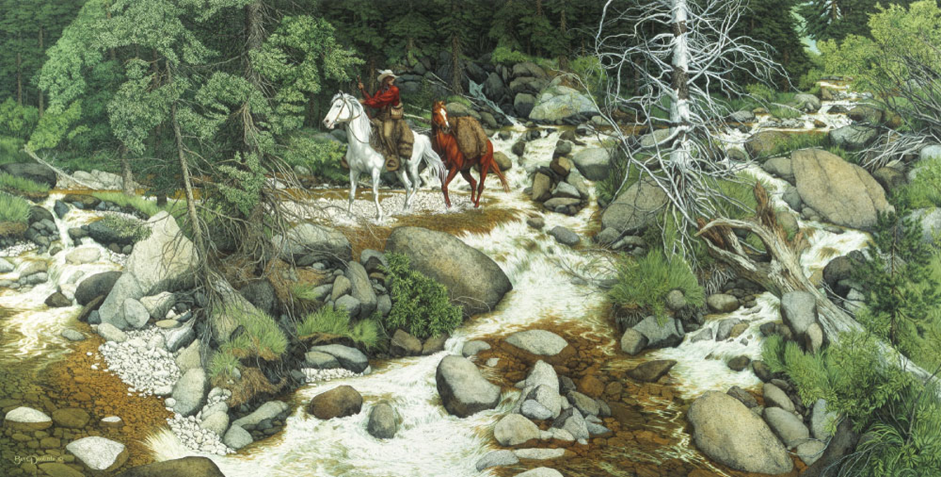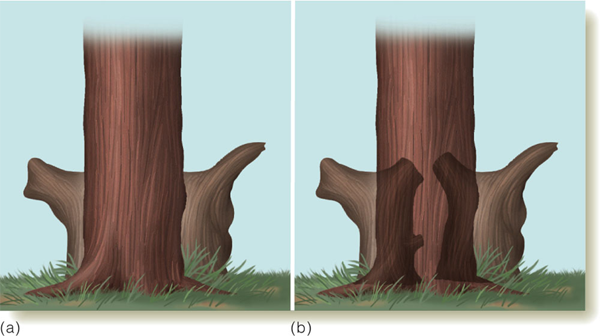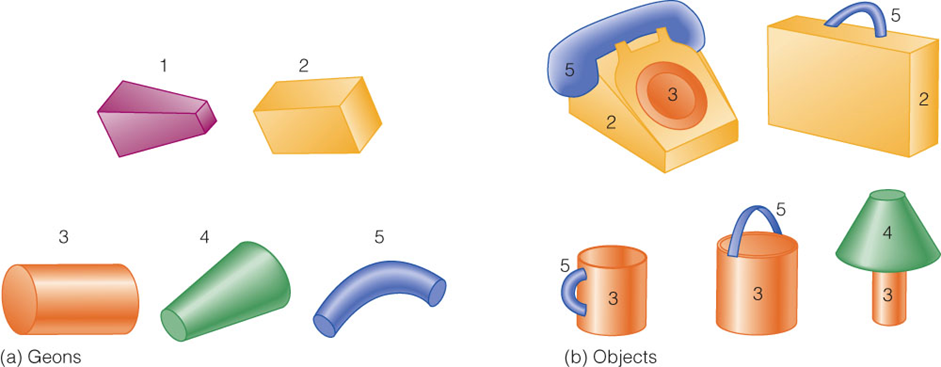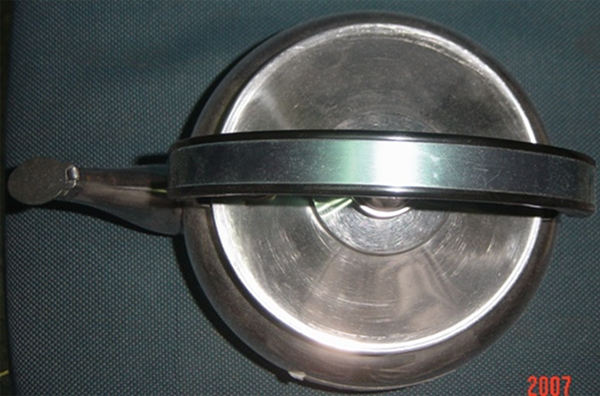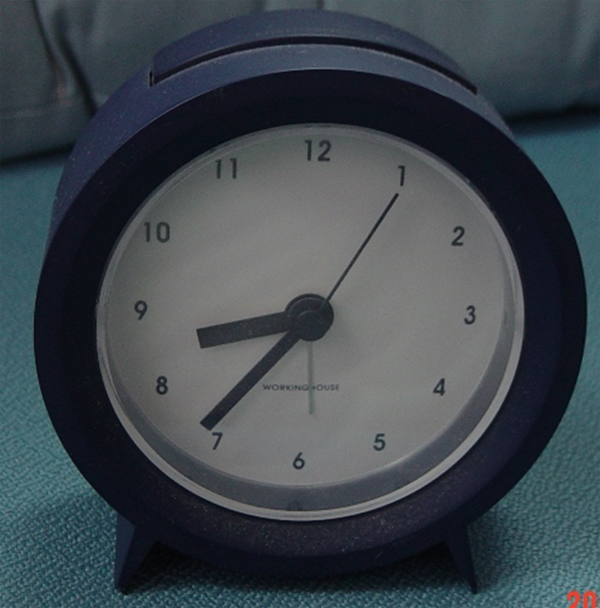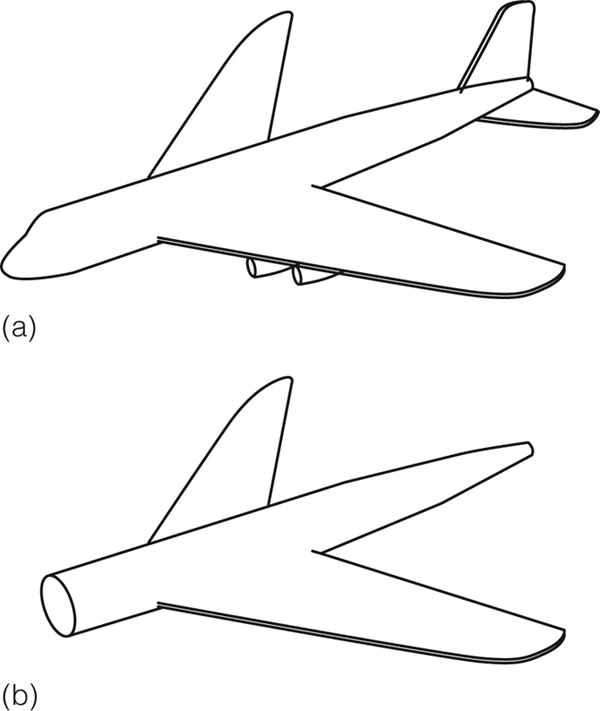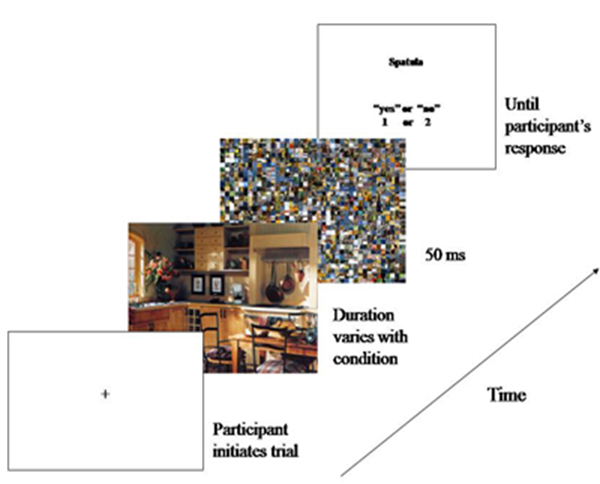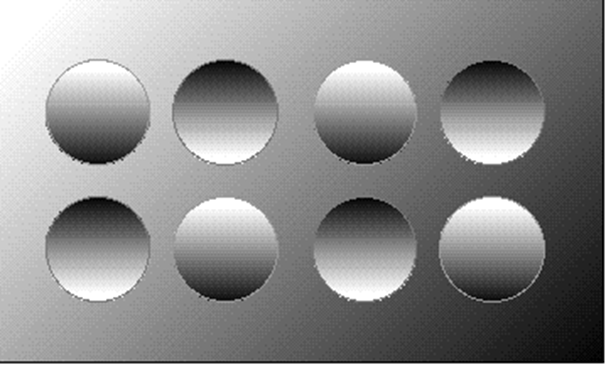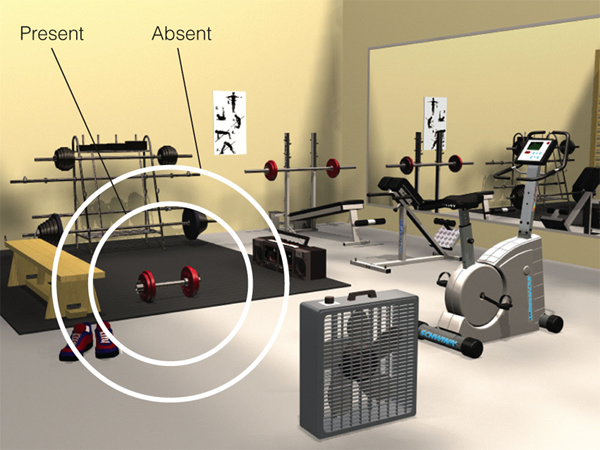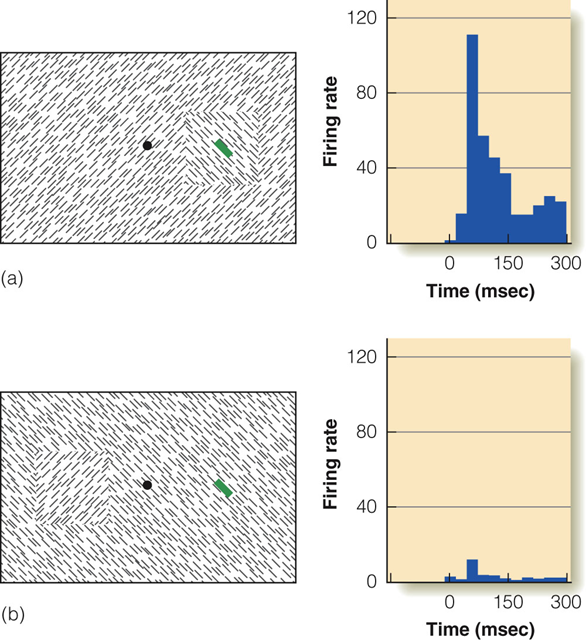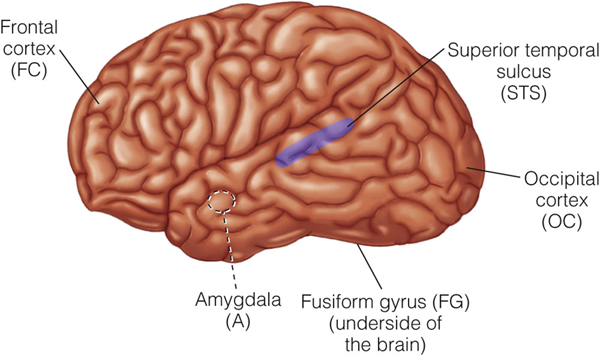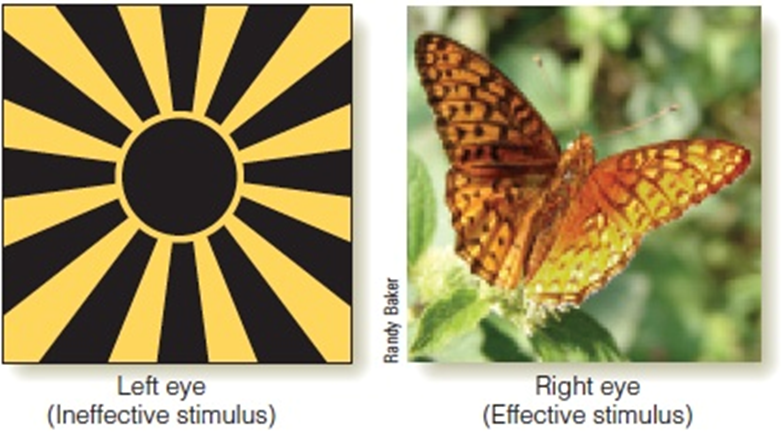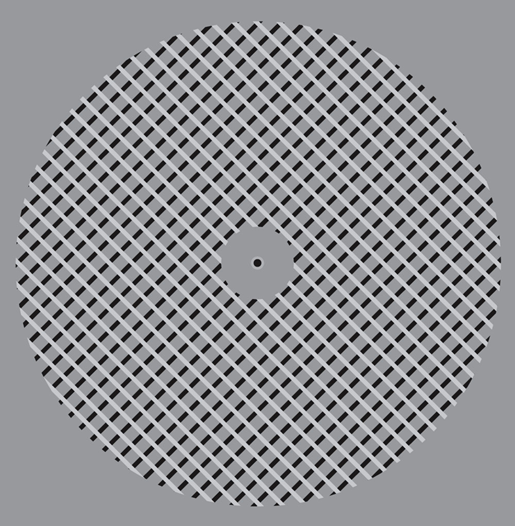第五講:Perceiving Objects and Scenes
出自KMU Wiki
[編輯] Perceiving Objects and Scenes
[編輯] Scenes
- 參照第94頁 封面
- 日常所見
- 參照第96頁 figure 5.1
- 困難所在
- 參照第96頁 figure 5.2
[編輯] 臉形辨識
- 困難處之一(角度)
- 參照第97頁 figure 5.3
- 在家中的畫面
- 機器人分析與錯誤
- 參照第97頁 figure 5.4
[編輯] 機器視覺
- 車速最高 50Km/hr
- 平均22Km/hr
[編輯] Spirit in Mars
- 2004-1-4
- Sashimi(生魚片)
- Spirit
- 登陸艇
- 機械臂
- Adirondack
- 形狀類似美國阿爾崗金族印第安人的帳篷故得名
- get a X-ray
[編輯] Optic
- 成像
- 參照98第頁 figure 5.5
[編輯] Inverse projection problem
- 參照第98頁 figure 5.6
- 又稱 Inverse Optics
[編輯] An environmental sculpture by Thomas Macaulay
- 從二樓陽台看
- 參照第98頁 figure 5.7(a)
- 從一樓看
- 參照第98頁 figure 5.7(b)
- 找一找鉛筆和眼鏡
[編輯] 這些人是誰?
- 參照第99頁 figure 5.9
Prince Charies, Woody Allen, Bill Clinton, Saddam Hussein, Richard Nixon, Princess Diana
[編輯] 從不同角度看
- 參照第99頁 figure 5.10
[編輯] 哪些照片是同一個人?
- 參照第100頁 figure 5.11
[編輯] 完形心理學
- 根據這些點(dot)累積創造出我們對臉的知覺的嗎?
- 參照第100頁 figure 5.13
[編輯] 似動現象(Apparent Movement)
- 由左至右的跑馬燈,似動現象(Apparent Movement)
- 參照第101頁 figure 5.14
- 參照第101頁 figure 5.15
[編輯] 錯覺輪廓(Illusory Contour)
[編輯] Illusory contour
- 參照第102頁 figure 5.16
[編輯] Good continuation
- 參照第102頁 figure 5.17
- 參照第102頁 figure 5.18
[編輯] Pragnanz
- 參照第103頁 figure 5.19
[編輯] 相似性 law of similarity
- 相似的刺激傾向被知覺為一體
- 參照第103頁 figure 5.20
- Similarity ?
- 參照第103頁 figure 5.21
[編輯] proximity
- 參照第103頁 figure 5.22
- 共同區域(Common Region,圖5.23a)、
- 連結律(Uniform Connectedness,圖5.23b)、
- 參照第104頁 figure 5.23
- 自然情境
- 參照第104頁 figure 5.24
- Common fate
[編輯] 12張臉孔在內?
- 具有意義或對觀察者較熟悉的刺激,會被視為一體,所以初看為一幅畫
[編輯] 你看到什麼?
- 知覺到的其中一個物體,另一個就成為背景
- 參照第105頁 figure 5.25
- 參照第105頁 figure 5.26
- (a)實驗呈現方式
- (b)當深色方塊被看成背景,則小黑點落在小方塊邊界上
- (c)當被看成中間有孔的深色方塊,則小黑點落在黑色方塊邊界上
- Figure ground separation 圖形背景分離
- 參照第105頁 figure 5.27
- 自然scene中的背景
- 參照第106頁 figure 5.28
[編輯] convex region
- 參照第106頁 figure 5.29
[編輯] meaningfulness
- 參照第107頁 figure 5.30
- 參照第107頁 figure 5.31
- face ??
- 參照第108頁 figure 5.32
[編輯] Gestalt law as Heuristics
[編輯] Recognition by component
[編輯] Non-accidental properties
- 上面的三條線--------------------------------------------------------------------上面的兩條線
- 都是非偶發特性(non-accidental properties)
- Biederman的實驗
- 3個geons的飛機
[編輯] 場景知覺(Gist of the Scene)
- Mary Potter(1976)快速呈現16張複雜場景圖片,每張只呈現250毫秒。
- 在一連串呈現之前看到目標圖片或只是提示語(如:小女生在拍手)
- 結果受試者都可以看得到
- 參照第107頁 figure 5.32
- Li Fei-Fei (2007)
- 利用masking每張圖片呈現27到500毫秒,每張圖片呈現完之後會呈現一個mask來精確控制刺激呈現時間
- 結果67ms 即可辨識(看到有人 :p)
- 參照第108頁 figure 5.33
[編輯] Masking
- masking procedure
- 抵消persistence of vision
[編輯] Global Image Feature
- Oliva and Torralba (2001, 2006)
- Degree of naturalness
- Degree of openness
- Degree of roughness
- Degree of expansion
- Color
- 參照第108頁 figure 5.34
[編輯] Regularity
- 參照第109頁 figure 5.35
[編輯] light-from-above heuristic
- 參照第110頁 figure 5.36
- 實例
- 參照第112頁 figure 5.38
- 旋轉
[編輯] Semantic Regularity
- Hollingworth (2005)
- 前圖為例,條件為二
- 目標出現
- 目標不出現
- 作業
- 目標出現在何處
- 目標該出現在何處(在無目標條件下)
- 結果
- 小圓:目標出現時
- 大圓:目標不出現時
- 前圖為例,條件為二
- Palmer (1975)
- 先呈現給受試者流理台的圖片(圖5.37左)
- 然後再快速閃現另一組圖片(圖5.37右)
- 當後面出現的這張圖片為麵包的時候,受試者的正確率較高。
- 參照第110頁 figure 5.37
- multiple personalities of blob:Oliva & Torralba(2007)
- 參照第111頁 figure 5.38
[編輯] The role of inference in perception
- 參照第111頁 figure 5.39
[編輯] theory of unconscious inference
- 當我們面對不清楚的刺激時,視覺系統會根據其他各種條件,比如過去經驗,去推測當下的刺激為何。這樣的知覺推理歷程稱之為theory of unconscious inference
- likelihood principle
- Bayesian inference
[編輯] Neurons for grouping
原來對垂直線段有最佳反應的神經細胞(a),若置於其它隨機角度的線段中,反應會受到抑制(b),但若置於具有共線關係的線段中,便又使得反應增強(c)
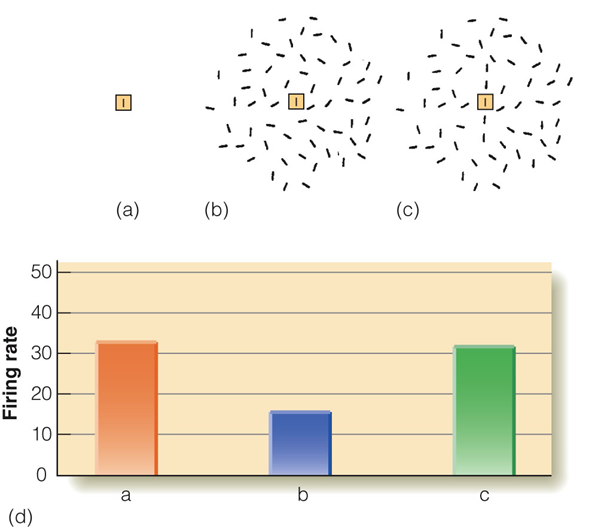
[編輯] Contextual modulation
- Lamme (1995)
- 如果線條符合V1細胞的接受區形式且在「圖形」中:反應(a)
- 如果線條符合V1細胞的接受區形式但不在「圖形」中:不反應(b)
[編輯] Sensory coding
- 在臉部知覺的部分,以下幾個區域會有怎樣的反應?
[編輯] Grill-Spector(2004)之實驗
- 參照第115頁 figure 5.43
- Grill-Spector(2004)之實驗結果
- fMRI資料顯示,FFA不只對是否看到臉有不同反應,也會因為受試者的反應正確與否而有不同的反應
- 參照第115頁 figure 5.44
[編輯] Sheinberg and Logothesis (1997)
[編輯] Tong等人(1998)實驗
- 當觀看者,經驗到非臉,則:PPA>FFA,經驗到臉,則FFA>PPA
- 參照第113頁 figure 5.41
[編輯] Voxels
- Voxels(volumetric pixel)
- fMRI Voxels2~3mm立方體
- Kamitani and Tong(2005) 可以由Voxels預測觀察者所見的傾斜方向
- 參照第114頁 figure 5.42
[編輯] Kamitani and Tong(2005)
- 發現腦部反應可以預測觀察者的注意力是在哪個傾斜刺激上
[編輯] Kay等人(2008)實驗
- 呈現1,750黑白照片
- 測量V1的500個voxels
- 整理voxels之活動之後
- 經過數學處理
- 由voxels的活動猜測觀察者所見
- 正確率72~92%
- Kay等人(2008)實驗結果
[[Image:05Kay.png】]
[編輯] Structural encoding
- 觀看1750張圖
- 測量各voxel的活動
- 每一voxel對於不同圖的反應特性來計算該voxel的特徵
- 參照第115頁 figure 5.44
[編輯] Are faces special?
- 參照第006頁 figure 5.50
- face!!
- negative image
- 參照第120頁 figure 5.51
[編輯] face in brain
- 可能有關的
- 參照第120頁 figure 5.52
- development
- 參照第121頁 figure 5.53
- 參照第121頁 figure 5.54
- development inf brain
- 參照第122頁 figure 5.55
- Think about
- 參照第122頁 figure 5.56
- 參照第123頁 figure 5.57
- 返回知覺心理學
